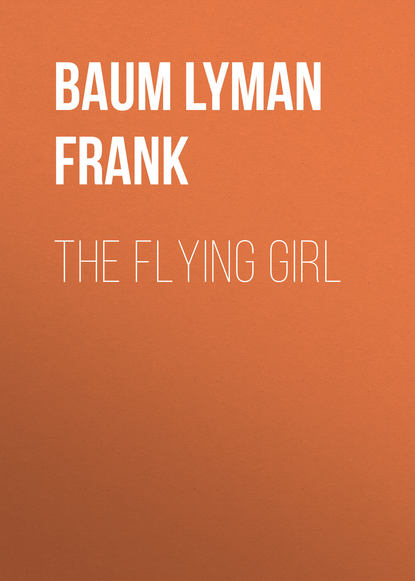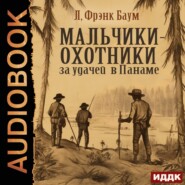По всем вопросам обращайтесь на: info@litportal.ru
(©) 2003-2024.
✖
The Flying Girl
Настройки чтения
Размер шрифта
Высота строк
Поля
“I don’t see how that man can possibly injure me,” he said, musingly. “I’ve gone straight ahead, in an honest fashion, and minded my own business. As for the machine, that’s honest, too, and all my improvements are patented.”
“They’re what?”
“Patented, sir; registered in the patent office at Washington.”
“Oho!”
Steve looked at him, surprised.
“Well, sir?”
“You’re an irresponsible idiot, Stephen Kane.”
“Because I patented my inventions?”
“Yes, sir; for placing full descriptions and drawings of them before the public until you’ve startled the aviation world and are ready to advertise what you’ve done.”
Steve stared, a perception of Cumberford’s meaning gradually coming to him.
“Why, as for that,” he said a little uneasily, “no one ever takes the trouble to read up new patents, there are so many of them. And, after all, it’s a protection.”
“Is it? I can put another brace in that new elevator of yours and get a patent on it as an improvement. The brace won’t help it any, but it will give me the right to use it. I’m not positive I couldn’t prevent you from using yours, if I got mine publicly exhibited and on the market first.”
Steve was bewildered, and Orissa looked very grave. But Mr. Cumberford lighted another cigarette and added:
“Nevertheless, I wouldn’t worry. As you say, the patent office is a rubbish heap which few people ever care to examine. Is everything covered by patent?”
“Everything but the new automatic balance. I haven’t had time to send that on.”
“Then don’t.”
“The old one is patented, but it proved a failure and nearly killed me. The one I am now completing is entirely different.”
“Good. Don’t patent it until after the aviation meet. It’s your strongest point. Keep that one surprise, at least, up your sleeve.”
As Steve was considering this advice Sybil Cumberford came softly to her father’s side and said:
“Daddy, I want to fly.”
“To flee or to flew?” he asked, banteringly, at the same time looking at her intently.
“To fly in the air.”
Mr. Cumberford sighed.
“Kane, what will a duplicate of your aircraft cost?”
“I can’t say exactly, sir,” replied the boy, smiling.
“Shall we order one, Sybil?”
She stood staring straight ahead, with that impenetrable, mysterious look in her dark eyes which was so typical of the girl. Cumberford threw away his cigarette and coughed.
“We’ll consider that proposition some time, Steve,” he continued, rather hastily. “Meantime, perhaps my daughter could make a trial flight in your machine.”
“Perhaps,” said Steve, doubtfully.
“Will it carry two?”
“It would support the weight of two easily,” replied the young man; “but I would be obliged to rig up a second seat.”
“Do so, please,” requested Miss Cumberford, in her even, subdued voice. “When will it be ready?”
“The aircraft will be complete in about ten days from now; but before I attempt to carry a passenger I must give it a thorough personal test,” said Steve, with decision. “You may watch my flights, Miss Cumberford, if you wish, and after I’ve proved the thing to be correct and safe I’ll do what I can to favor you – if you’re not afraid, and still want to make the trial.”
“Thank you,” she said, and turned away.
“I’ll go myself, some time,” observed Mr. Cumberford, after a pause. “Flying interests me.”
Orissa was much amused. She had not known many girls of her own age, but such as she had met were all commonplace creatures compared with this strange girl, who at present seemed unable to tear herself away from the airship. Sybil did not convey the impression of being ill-bred or forward, however unconventional she might be; yet it seemed to Orissa that she constantly held herself firmly repressed, yet alert and watchful, much like a tiger crouched ready to spring upon an unsuspecting prey. In spite of this uncanny attribute, Orissa found herself powerfully drawn toward the peculiar girl, and resolved to make an attempt to win her confidence and friendship.
With this thought in mind she joined Sybil, who was again examining the aëroplane with rapt attention. While she stood at her side the girl asked, without glancing up:
“Have you ever made a flight?”
“No,” replied Orissa.
“Why not?”
“I haven’t had an opportunity.”
“Don’t you like it?”
“I imagine I would enjoy a trip through the air,” answered Orissa; “that is, after I became accustomed to being suspended in such a thin element.”
“You seem to understand your brother’s invention perfectly.”
“Oh, I do, in its construction and use. You see, I’ve been with Steve from the beginning; also I’ve examined several other modern aëroplanes and watched the flights at Dominguez Field. Naturally I’m enthusiastic over aviation, but I haven’t yet considered the idea of personally attempting a flight. To manage a machine in the air requires a quick eye, a clear brain and a lot of confidence and courage.”
“Is it so dangerous?” asked Miss Cumberford quietly.
“Not if you have the qualities I mention and a bit of experience or training to help you in emergencies. I’m sure an aëroplane is as safe as a steam car, and a little safer than an automobile; but a certain amount of skill is required to manage even those.”
The girl’s lips curled scornfully, as if she impugned this statement; but she remained silent for a while before continuing her catechism. Then she asked:
“Do you mean to try flying?”
“Perhaps so, some day,” said Orissa, smiling; “when aëroplanes have become so common that my fears are dissipated. But, really, I haven’t given the matter a thought. That is Steve’s business, just now. All I’m trying to do is help him get ready.”

















